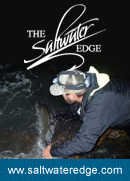I been thinking about the state of fisheries lately. Mostly at work since I been going 7 days a week for awhile now. No, I really don’t think there is a point in debating if the striped bass fishery is in trouble. If you think all is hunky dory, then I wouldn’t try to change your mind, at least not in this post. I’ve done plenty of them over the years talking from personal perspective and shared post by others.
Darn, I remember sitting on tailgate in Montauk Point with Vito Orlando and Bill Wetzel years ago. Bill at the time was not a believer in what we thought was coming. White bait blitzes were in full force, his customers were catching fish, I cant say I blamed him. He was always a big advocate of catch and release or responsible harvest. He just didn’t believe that the inshore striped bass fishery would look like this in only few years. Hell, I am having a hard time believing what I am seeing. And I expected it!…but not to this extent.
Which brings me back to my original thought…why?
No, I wont buy the argument that it was Sandy, lack of bait, changed migration route, water temps. There is a precedent for what is going on today and you have to reach far, far back in the time capsule….
During the last collapse, there were pockets of good fishing, particularly at Cape Cod and later at Block Island. There were pockets of good fishing this year too , on bunker schools that wrapped around NJ, to LI to Montauk Point. There were big fish, really big fish , and if you didn’t get on them in time, you could shove a thumb up your ass becouse the resident fish were not staying behind these schools. To be fair, Cape Cod Canal had insane blitzes last few weeks and you’d be happy to know (or not) that thousands of big fish were caught and dragged to the trucks. Often by same guys who were whining to me few weeks ago when I was there in late May how terrible fishing was, how we need a moratorium or higher limits. Story for another day I guess..
Back to why inshore is bare. If you are having a hard time getting a bump on your local beach, you are not alone. Most of my crew is either fluke fishing or grilling in the back yard. Not too many are putting any effort and when they do, they are getting a lot of exercise and not much more. I am hearing the same from friends along the coast from NJ to ME with Cape Canal again being the exception.
I believe that when the fisheries are healthy and fish are plentiful, the competition for food is fierce and stripers take residence all over the coast in search of food. In fall, they reunite in big schools for their migration southward but for most of spring and summer, they feed in smaller schools in local inlets, harbors, rivers and such. That is why NJ guys and NY guys and MA guys used to all have a good bite in June when today only one out of those three for example, will have it AND it will be limited to a specific place, not spread out throughout the region. And yes, there were always fish in deep water too. Boats caught fish, surfcasters caught fish, kayak guys caught fish.
So now we have smaller schools, which do not need as much food to sustain themselves. Hell, there is more food (bait) last few years than I have ever seen but nothing is chasing these baitfish. Just like baitfish congregate in numbers for safety, is it possible that striped bass do too? Maybe as a survival instinct? Why would they come inshore when there is plenty off food offshore and no competition?I think there might be something to that but as of right now, striped bass are refusing any interviews due to what they perceive is a lack of respect by the general public.
I honestly have no desire to beat the drum continually and yell Sky is Falling, that is not the point of this post. I think its little too late for that. In all honestly, I am curios why many of you think that suddenly the resident fish are missing ffrontier usual inshore spots?
btw
I got a feeling we are going to get an early fall run, whatever it might look like, this year. In fact, I would not be surprised if it started already in few places. Reason? Nothing more than temperatures. This is unseasonably cool for too long not to have an effect
thanks to our friend Dennis Zambrotta for this 1977 article from Boston Globe













My season started off as many others did…..slow, slow, slow! I was heading into this season with my own agenda….my own self-regulating rules in place! All fish over 38 inches would go back in the water and I would only keep the occasional fish for the table (only 3 so far this season)! With the slow start to my season I opted to fish from my kayak more….in fresh water as the bite was more consistent……and I have been having a blast! Been saltwater kayaking 4 times with 1 fish…today…30 inches and it went back! I have fished from the surf maybe 12 times all year with 6 of those being the canal. Last week I caught my new personal best…..an estimated 36-38 pounder (beautiful fish). I had 2 smalls on the rocks for a weekend bash with friends……as per my self-imposed rules…..it went back! I have to tell you after releasing such a beautiful large fish! I am now hooked on the practice! It felt so good to let her slip through my fingers to swim another day! It will be easier to do in the future as well! I really enjoyed it!
↓1. Human greed,
I have stood on the shores of Montauk sandy beaches south side and watched the commercial boats rake the beaches with nets 50 yards from the shoreline and saw/counted hundreds of fish caught… I have seen the party boats max out and still fish over the limit.. I have seen the white bait bucket “no speak english” guys take 4 shorts per man in hoards of hundreds of people.
2. Stinken seals, say what you want, show me scientific data I don’t care, I have seen seals eat big bass until they were full “them puke them up just to seat again” greedy sea dogs worse than humans.. when they show up the bass are gone… stripers are not stupid they are staying off shore to avoid the seals and ı have seen this with my own eyes and I dont care what anyone says…
3. Crooked politicians, lets call a spade a spade, sticken lowlife politicians who are siding with the private interest groups are pulling strings and allowing massacres of our great game fish to line their own pockets…
THE ONLY WAY TO SAVE THE STRIPED BASS IS TO DO WHAT WAS DONE BEFORE AND DECLARE THEM POISON TO EAT;
↓TOTAL MORITORIUM 2 … AND DO THIS ASAP BEFORE ITS TOO LATE!!!!!!!!!!!!!!!!!!!!!!!!
like BIGFISHLARRY I self imposed regulations, except that I gave myself a moratorium. Put em all back in the swim. I can not change the minds of the majority I can only change the way I think and do things.
↓In the interim I have been hitting freshwater and trying a new sport of fly fishing the Delaware river and northern NJ streams.
The new challenges keep my mind at ease but I miss the salt. I find myself looking at the surf cams often.
What are you gonna do????
I agree with Awesome John about the seals and the politicians! Too bad seals do not eat politicians….problem would be solved! Also Rob is echoing my feelings 100%! We can’t change the masses…..we must make our own changes within ourselves! Check out 1@32……a great movement going on! Rob……I am getting closer to 100%release myself! I miss the salt as well when I am fishing the freshwater but it does present new challenges and thats great!
↓“I think there might be something to that but as of right now, striped bass are refusing any interviews due to what they perceive is a lack of respect by the general public.”
↓^^ Best line from a SCJ blog post ever.
I think the inshore fishery is the first to suffer when a fishery is in decline, it’s the canary in the mine. It’s a risky environment for bass, and there needs to be a level of abundance for them leave the safety and food availability of the deep water.
On another note: That’s sad to hear about the canal. Not that the fish were there in abundance, that’s great, but that they were once again so vulnerable to decimation. After being there when every Tom, Dick, & Harry is throwing fish on the bank, and watching a warden drive past with a truck FULL of fish that were caught by people without a license, I’m personally convinced that the fish moving through there NEED some special protection. It’s a double edge sword: It’s a fantastic place to access bass, but because of that it’s a slaughter when they’re there. Why can’t this be curbed or stopped?!
↓I’m no sharpie, but i fell in love with surf fishing eight years ago. I can’t really speak on experiences of huge bass bites, or seeing even more than a handful of fish being taken from the waters while i’ve been out. But even despite the low “success rate” i’ve had, i still love the rituals of fishing.
I think limits are insanely out of line, and there is NO policing of regulations. I honestly cant believe the fish stocks survive as well as they do.
If you want to see a decent documentary on the state of the waters– check out “Mission Blue” on Netflix. Its not just striped bass– we’re killing off everything, and its snowballing. We need to regulate and protect our waters FAR more than what we are currently doing. Its scary to think what things might be like 20 years from now if we dont make changes soon.
↓Zeno,
↓I do agree with you but will refrain from commenting on the slaughter, haven’t given up it just such so mentally taxing to speak of sometimes.
I will say thjat I agree with you about the cold water. fishing spots in the western sound and it feels like early june. Normally the water is bath tub like and hypoxic coming to the end of august.
Good Luck and Tights lines to all.
Great Post Zeno!
Glad I checked in !
Release them all !
-Danny
↓There are probably a dozen or so reasons why bass are declining outside of the overfishing, however we can only address that issue. It’s very disheartening when you know that the guys doing the damage don’t give a crap or just don’t even know that it’s a problem, just chalking it up to a bad season.
↓But the argument about evidence being the lack of fish inshore, anecdotal as it is is definitely solid. When a species expands, it’s range has to increase and when in decline, we see contraction to the safest most comfortable areas. We see this all over the globe with birds, lions, insects. Sure, favorable conditions help, like cleaner water, abundance of bait etc. But if I’ a striped bass or an alligator and the bigger, easier meal is where human pressure is not, bet you shoes that I’ll be there. The human race is the world’s leading example of this expansion and contraction. So for all you butt heads that refuse to recognize what’s going on, please look in the mirror. The human race did not start in NC or RI or Montauk Harbor, Sheepshead Bay and the Manasquan River.
Well, this time around as the stock declines we have front row seats… And we even have the science showing the numbers are down. Years ago I could fish my spots and catch 6 or 8 , now I’ll be lucky with one or two, but a skunk is now a possibility. Those nights in the 90s hearing fish popping all over the place…no I can’t remember hearing that in the last 6 years.
The trouble is, there is not yet any accepted understand as to why when a stock declines they contract in rang such that we see the mother load all in just one place
Until then some charter boat guy will tell you it’s all in your mind, there’s plenty of fish…out there somewhere
↓It’s a real shame. It seems many of our resources are falling victim to the “disposable” ethic that is becoming more and more pervasive in our society, especially in younger generations. It’s evident in the increased amount of trash on the beaches and in our waterways. The new mantra seems to be: “If something breaks or gets old, why try to fix it if you can replace it with another one made in China?… who cares about the old fixable item which is now clogging a landfill”. My daughter and I spent 20 minutes last week trying to untangle a pair of horshoe crabs from so much monofilament that it looked like they’d grown it from inside their shells. Unfortunately, this attitude is blindly being applied to many finite natural resources, like clean water or in this case, our fisheries. But they are not easily replaceable and we can’t be “disposing” of them so easily.
↓What Zeno pointed out makes sense…In a healthy fishery, the resource spans so broadly that we benefit inshore from the vastness of the schools spreading to the coastal fringes (i.e. there is no reason to even look well offshore if the fish are close). As the fishery declines, there are fractured pockets of that big school left, but they will follow their food sources in the places where there is the least amount of pressure on their population – this is offshore, farther away from seals and humans and pollution. They’re not dumb…survival instinct runs deep (why else would we see so much more life in natural sanctuaries than we do outside of them?).
The human race has brought about some of the greatest instances of creation and destruction throughout history…Hopefully there are still enough people around that care enough to keep our influence on this planet positive going forward.